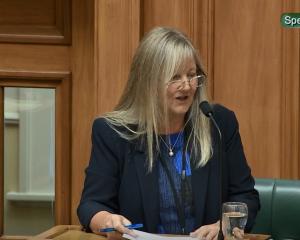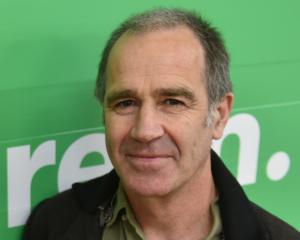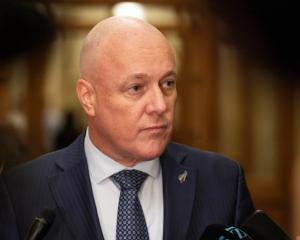
Finance Minister Bill English produced an underwhelming tax announcement yesterday, buried on page two of a four-page press statement.
A reduction in tax could start from April 1, 2017, provided economic and fiscal conditions allowed.
And before the tax cuts could start, the previous three financial priorities of a National government had to be met, he said.
They were:
• Return to surplus this year and maintain surpluses over subsequent years.
• Reduce net government debt to 20% of GDP by 2020, including starting to repay net debt in dollar terms in 2018.
• Further reduce ACC levies on households and businesses starting on April 1, 2016.
Mr English tried to spin the reduction of ACC levies as a tax cut.
''A National government will cut levies on all ACC accounts by an average of around 30%.
''Subject to public consultation, this will reduce levies by between $700million and $900million a year - the equivalent of a tax cut for households and businesses.''
The fifth financial priority was using any further ''fiscal headroom'', including from positive revenue surprises, to get net debt to 20% of GDP sooner than 2020.
Once debt got to 20% of GDP, National would resume contributions to the New Zealand Superannuation fund, Mr English said.
Polson Higgs tax partner Michael Turner said National had obviously been debating internally what to say and do about tax cuts.
''They were talking it up, then talking it down and they come up with this. They've just wasted a sheet of paper, in my view. It's like saying I might go to Christchurch in 2017.''
The reductions in ACC levies were a step in the right direction but were hardly a tax reduction, he said.
In his announcement, Mr English said a National-led government would restrict average Budget allowances for discretionary new spending and revenue measures to $1.5billion a year over the next three years.
About $1billion a year would be allowed for new spending and the remaining $500million per Budget would be reserved for modest tax cuts and further debt repayment as economic and fiscal conditions permitted.
The $500million would be moved between Budgets and accumulated as necessary and by the third year, there would be about $1.5billion for tax cuts and debt repayment.
Prime Minister John Key turned his fortunes in the last debate with Labour leader David Cunliffe when he pressed Mr Cunliffe on capital gains tax and the Labour leader could not answer.
National's tax policy contains little detail, something Mr Cunliffe may use on the TV3 leaders' debate tomorrow night.
Mr Cunliffe said the proposed cuts were a ''joke''.
''I thought John Key was going to deliver a block of cheese. Turns out that it's only half of that.
''It's in three years' time, maybe, if you're lucky, and if the economy doesn't fall in a hole. This is a joke.
"The National Party's dance of the veils ended up with a big reveal. And what it revealed is the hole in Government policy.''
Green Party co-leader Russel Norman accused National of being hypocritical.
National attacked the clearly set out and detailed fiscal plans of opposition parties, but could not set out the basics of a tax cut, like how much it would be and who would get it.
''Show us the money, Mr Key. John Key is going into this election asking people to vote for the idea of tax cuts that may or may not happen.''
The Green Party was offering New Zealanders an immediate $1billion tax cut funded by a charge on carbon, he said.












